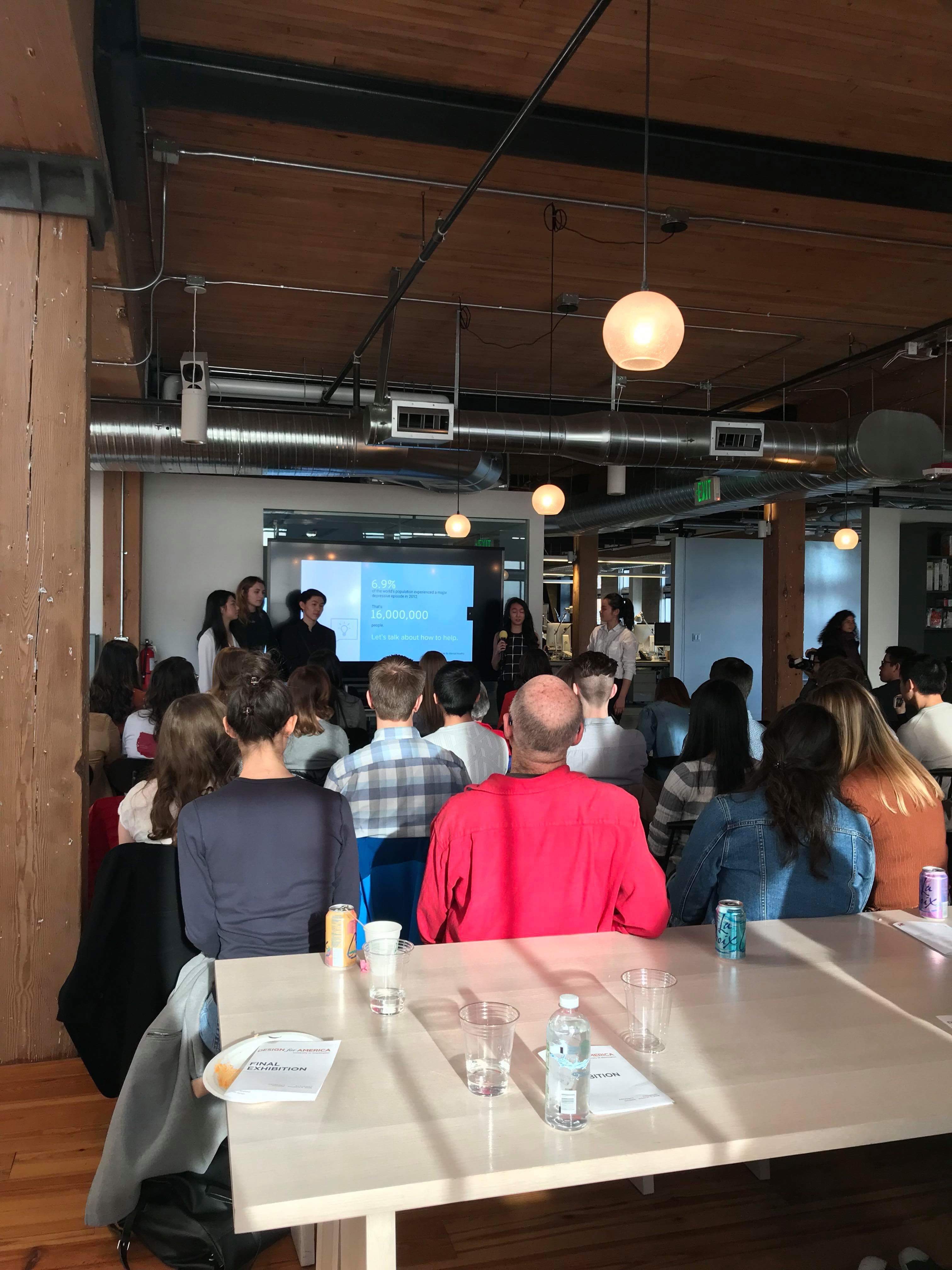
CONVO
Life Questions
Depression and suicide are very difficult subjects to discuss, not only within society, but between close family and friends as well. CONVO is a tool to begin that conversation with people important to you. CONVO both provides a structure to build a conversation around, and allows that conversation to flow as desired.
Context
Project as part of the student organization Design for America
Duration
9 months (October 2017 - June 2018)
My Role
User researcher, ux designer
Tools
Adobe Illustrator
Team
Qien(Ester) Lin, Theresa Tran, Patrick Mao (Project Lead), Jennifer Li, Valerie Yuryk
Special thanks to
Design for America Internal Team: Andrew Le, Claire Kantner, Joseph Azizeh, Cara Pangelinan, Arsh Saroya | Community Partner: Forefront (Suicide prevention) | Mentors: Richelle Dumond, Scott Tsukamaki, Joe Sparano | Artefact (design company)
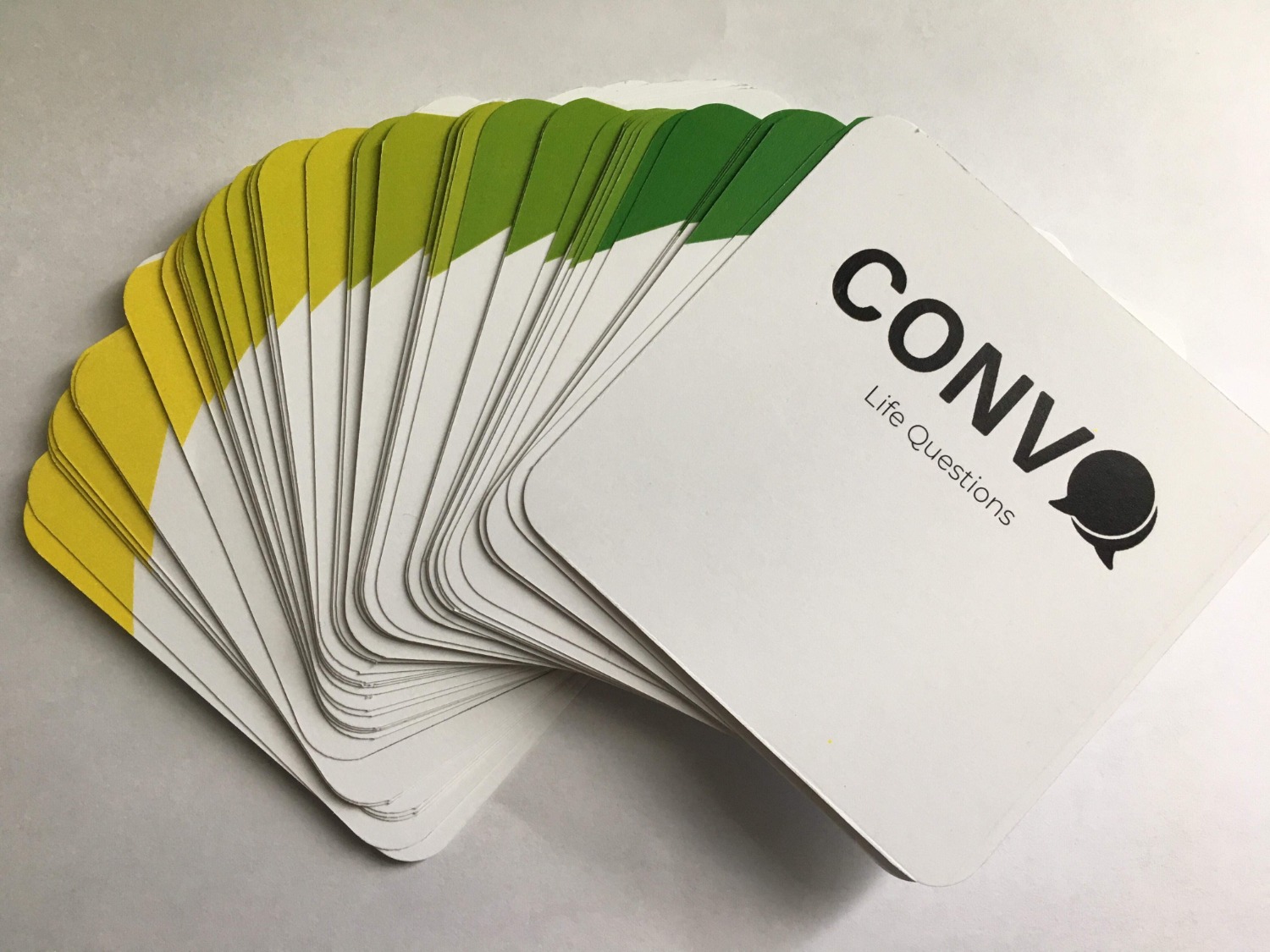
Design Process
We followed the National Design for America design guide for tackling complex social challenges.

Identify
How might we facilitate more open and meaningful conversations between individuals experiencing depression or suicidal thoughts and their family and friends?
Problem Area
Depression & Suicide
User Group
Supporters of those afflicted with depression and/or suicidal thoughts
Immerse
Overview
Secondary Research
Suicide Statistics
Existing Treatments/Preventions
Primary Research
Community Partner
Survey
Interviews with attempt survivors and loss survivors
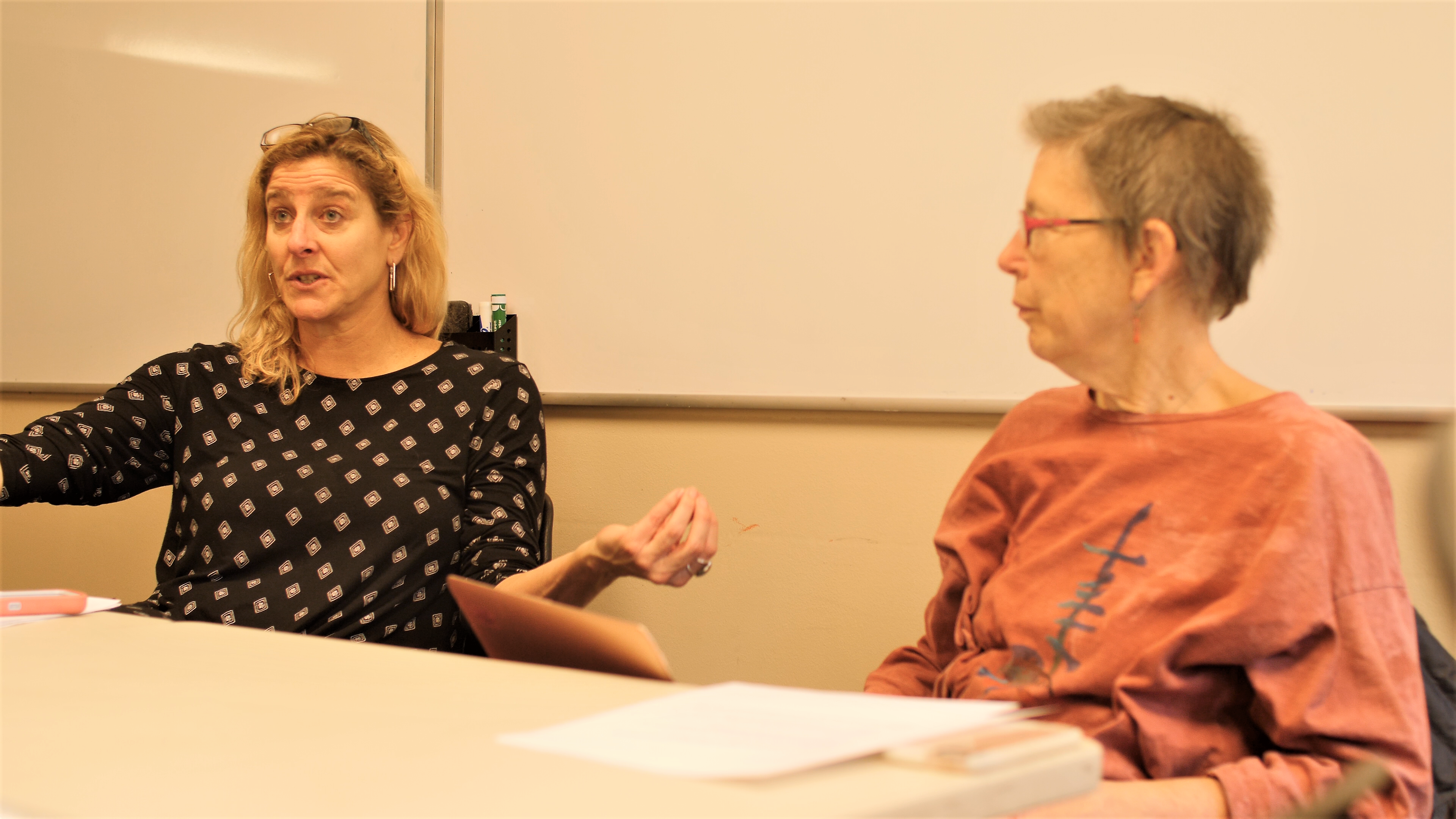
Key Findings
| Those battling depression and suicidal thoughts are self-isolating. | Emotional support is key to overcoming depression. | It is difficult for those with depression to reach out to others. | Family and friends often want to help, but don't know how. |
Reframe
Reevaluating and adjusting the direction of our project.
Original Topic
How might we develop or modify current urban infrastructure to encourage more open and positive engagements to improve mental health among Seattleites?
Research
Through our research, no clear connection between public infrastructure and mental health was found. Moving forward, we did not have supporting evidence or a base surrounding the original topic.
Mentoring
We had a key meeting with Forefront, deep into our project. From that meeting, along with previous research, a key part in depression and suicide that surfaced is the level of communication. An angle we then discussed was to focus on the supporters, and how to increase that communication.
New Direction
From many rounds of discussion and analyzing our research, we decided to reframe our project around supporters, and focus on aiding supporters in beginning conversations with those they care about.
Build
Ideation
After multiple rounds of ideation with feedback from mentors and DFA leadership, we settled on dinner-table type cards. Other highlighted possibilities include a public park, a group event and smartphone apps.
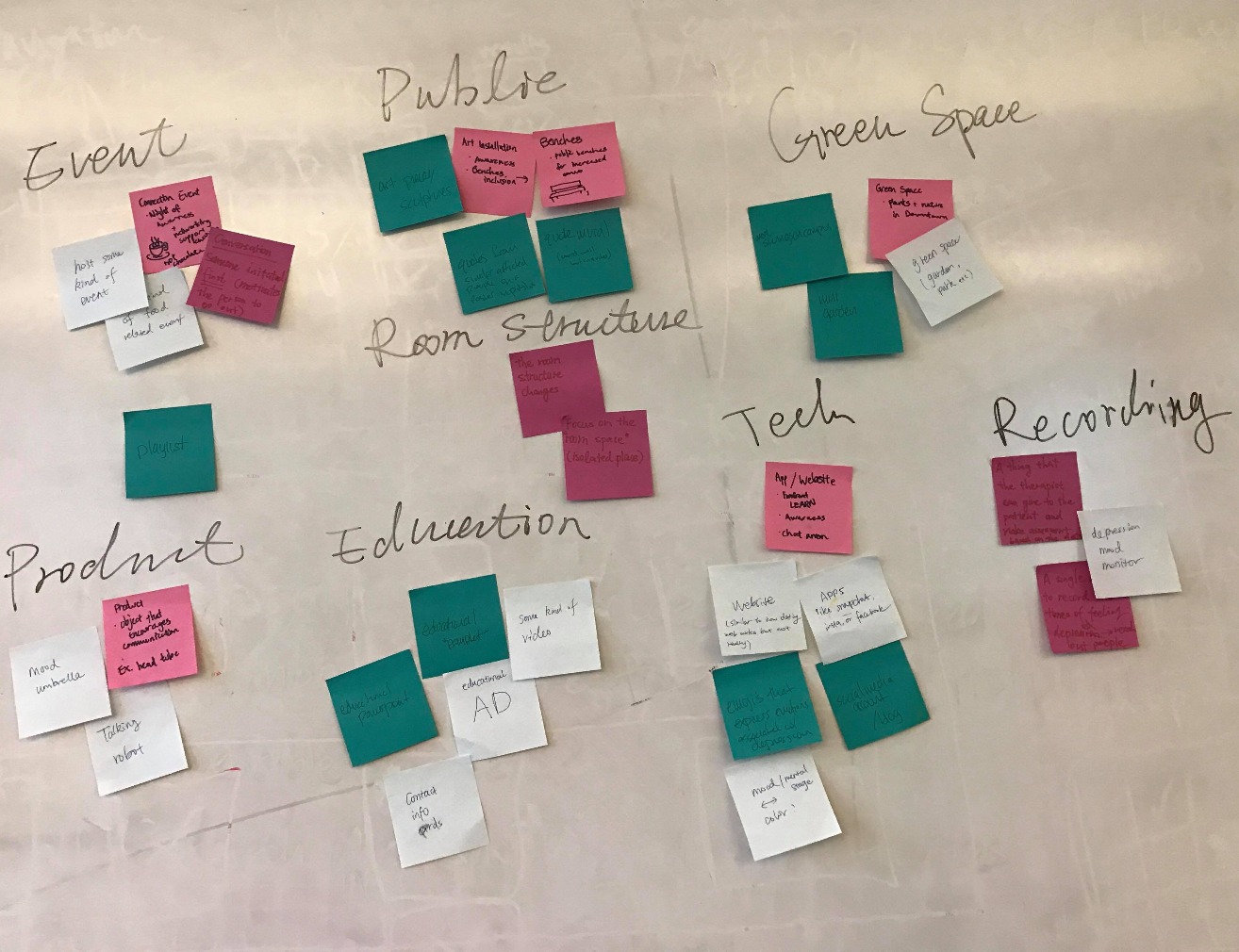
Design Princicples
|
Open / Freeform Open-ended: allows for discussion. Versatile: allows those from different backgrounds to interact. |
Insight Allows for the supporter to learn more about the afflicted individual. Helps the supporter gauge where the individual is at. |
Actionable Leads to the next level of action or care. |
Approachable Makes the first step to conversation easier. Break stigma about discussion depression. |
Prototypes
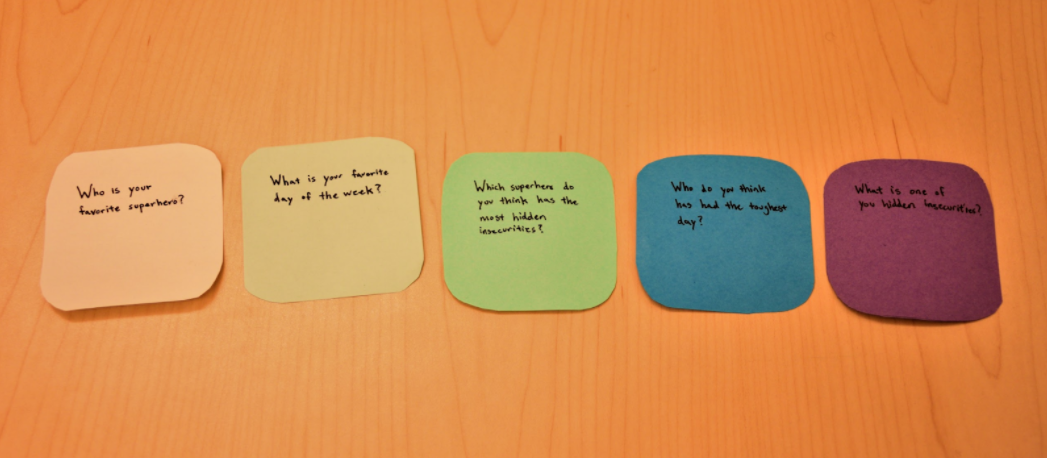
Lo-fidelity
Sticky Notes
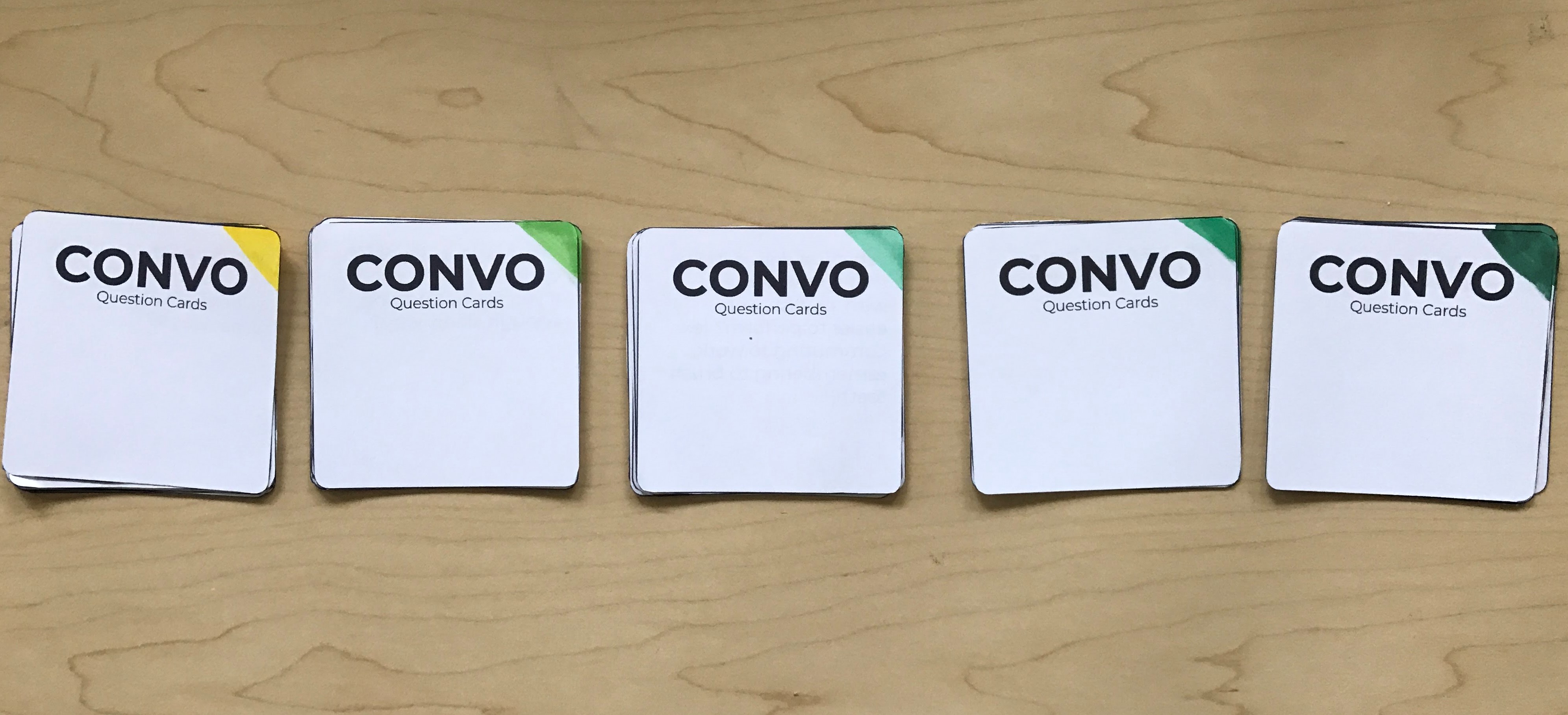
Lo-fidelity
Paper
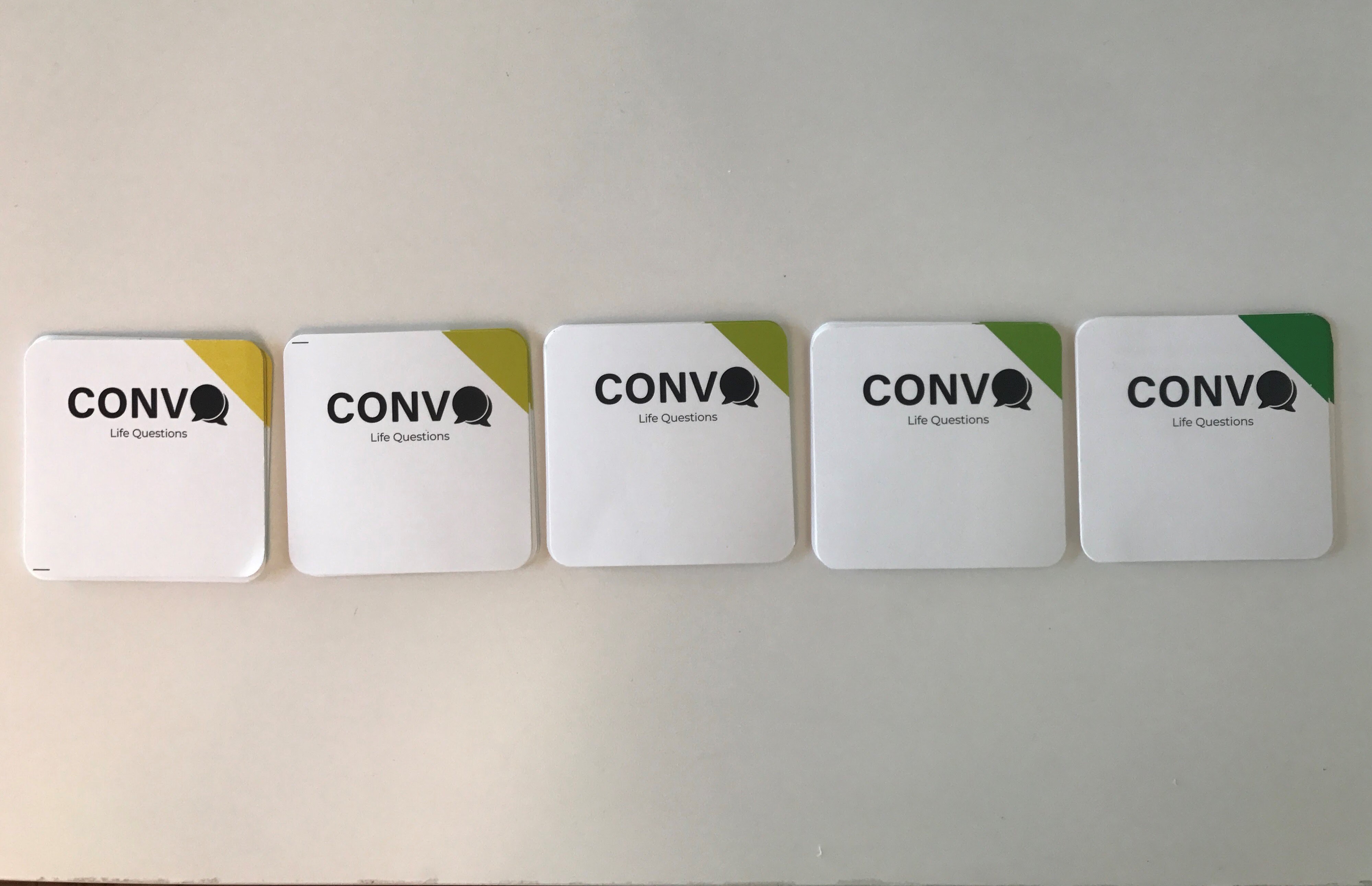
Hi-fidelity
Cardstock
Test
Overview
We conducted user testing with two groups: Forefront (suicide prevention) and Peer Health Educators (counseling center). Both parties during the Forefront test have relevant life experiences: one lost her son to suicide, and the other has battled depression before. For the Peer Health test, one was a professional counselor and one was a psychology student. We received valuable feedback regarding the wording of the questions, and format of the conversation cards.
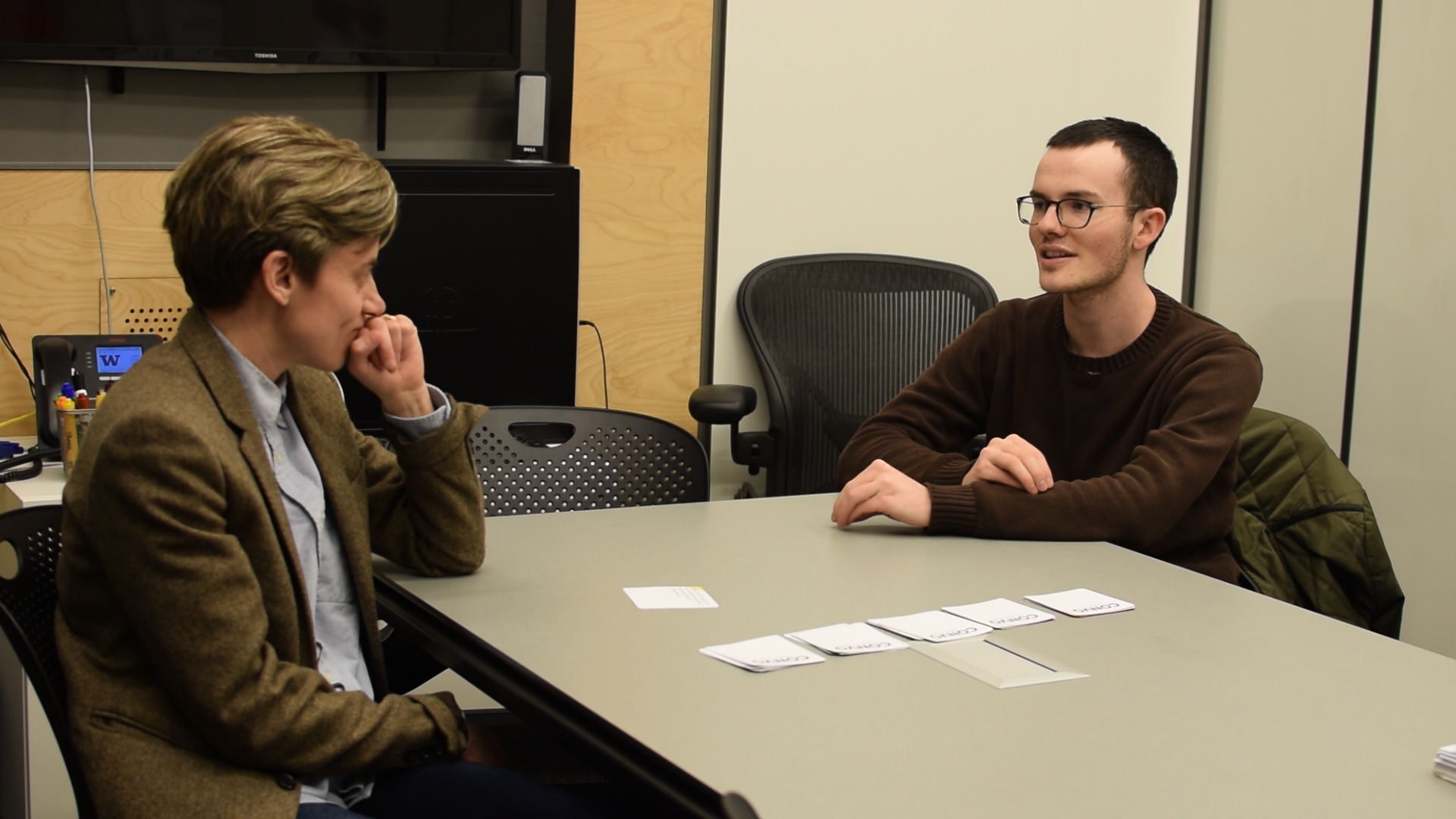
Challenges & Constraints
Reflection
For Design for America, we had a deadline for the final exhibition. This made it difficult to spend sufficient time conducting user research and reaching out to more professionals in the field. We also had minimal funding to develop our project.
Throughout the project, we had many different opinions that often conflicted, but always led to engaging in valuable discussions and unique ideas.
